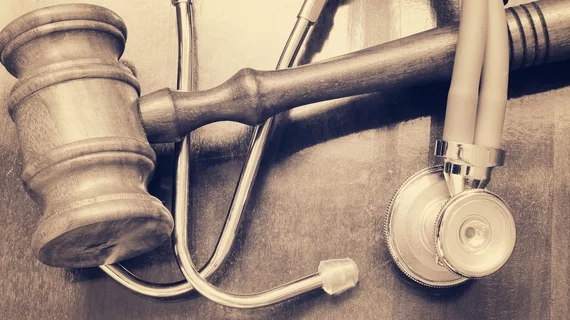Massachusetts patient awarded $11.5M in radiology malpractice suit
A jury awarded $11.5 million to a woman from Framingham, Massachusetts, in a medical malpractice suit filed against a radiologist in the state, which argued he was negligent in not adequately identifying a heart problem that eventually led to permanent brain damage, according to the Boston Globe.
On April 12, 2009, according to the suit, Anna Coelho, then 18 months old, claims her father brought her to Newton-Wellesley Hospital outside of Boston due to vomiting and possible dehydration, where William Denison, MD, a radiologist at the institution performed a chest x-ray. He concluded that “bronchiolitis v. atypical pneumonia was likely present,” the Globe reported.
Coelho claims that Denison’s actions resulted in “a significant delay in the diagnosis and treatment of myocarditis” which led to cardiac arrest and permanent brain damage. Her attorneys argued that Denison “failed to react accordingly to her enlarged heart,” the report states.
“She would have undergone an echocardiogram, her myocarditis would have been diagnosed and treated, and more likely than not, Anna would not have suffered heart failure and cardiac arrest which resulted in her severe and permanent neurological injury,” Coelho’s attorneys told the Globe. He went on to say that Coelho, who is now 11 years old, “functions in some ways as a 4-year old in terms of her development” as a result of the damage.
According to court documents reviewed in the report, the defendents claimed they complied with the standards of care when treating Anna Coelho. Newton-Wellesley Hospital was not among the defendants in the case.
Read the entire story below.

